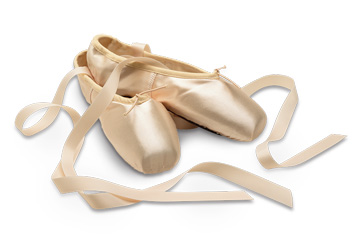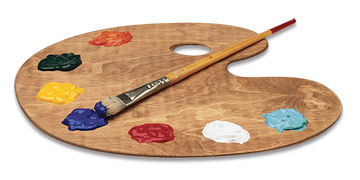Volume 25 · Number 1 · Fall 2007

Goodbye to Mom Marion
We say goodbye to Marion Franck. More . . .
Parents
Major Worries
What do you do if your student chooses a major you don’t like?
“Follow your dreams!” we parents tell our children from the time they are small. “You can be anything you want to be when you grow up!” We usually stick by that advice all the way up to college — until our children’s future career plans take a step toward becoming real — until they choose a major that we don’t like. Then what?
Most parents don’t question their children’s majors capriciously. They have solid reasons, many of them based on close observation of their children’s talents. But too often the objection is financial — “Will we get our money’s worth out of this education if she becomes an artist?” — an argument that is painful for students to hear when they are eager to follow their dreams. Parents also worry that the student won’t earn enough money to support a good life.
But be careful. If you express disapproval, you can drive a wedge between you and your student. They often become more reluctant to share both doubts and joys, whether they change majors or stay the course. Some students even opt for double majors, one to please parents, one to please themselves.
“My father told me my mind was too good to waste. I could make a lot of money,” says G.J. Mattey, who has had a satisfying 30-year career teaching philosophy at UC Davis. “I had a response prepared: that philosophy was good preparation for law school. The tough time was when I told him I wasn’t going to law school. He still believes I made a mistake.”
Brian Runstrom ’06 is a UC Davis graduate who understands the parental dilemma. Son of a business executive, he is currently trying to make it as a dancer in New York but doesn’t rule out changes later on.
He advises parents, “If you see that your kid is really passionate about something, do everything to facilitate it. Students don’t want to hear ‘Do it on the side.’
“But it’s OK to say to your kid, ‘You need to have a contingency plan.’”
Benefits of the unusual

It’s also important for parents to understand that a liberal arts major does not doom a student to being unemployable. On the contrary, says Professor Jim Griesemer, chair of the philosophy department: “Everything that’s going on today suggests that the world of work changes too rapidly now to train for it specifically.
“What students need to learn are core skills like analytical reasoning, ability to write well, think well, understand what they read and be good citizens. There’s nothing more practical than having skills that apply universally.”
Professor David Traill, chair of the classics department, shares that observation. “You’re becoming educated, learning about literature and through literature learning about life,” he says about students in his department. “Ancient or modern, life is still very much the same.”
In small, unique departments, students are more likely to work with graduate students and to get to know their professors, which can lead to personalized advice, not to mention letters of recommendation based on real knowledge of the student.
An unusual major can also lead to a more pleasant college experience. The classics department, for example, has such an active student organization that even students who leave the major sometimes return for the camaraderie.
The students spearhead participation in the Picnic Day parade, and last year 50 marched in a Roman triumphal procession (complete with chariot) as soldiers, prisoners, Antony and Cleopatra and other notables. Despite a downpour, everyone (including faculty participants) came away smiling.
Disciplined mind and body
The vigor of the unusual major can serve a student well. Take dance, for example — one major that parents especially seem to fear.
At UC Davis, dance is part of the Department of Theatre and Dance, and is a notoriously difficult field in which to succeed, notes David Grenke, an associate professor of dance who for seven years was a lead dancer for the Paul Taylor Dance Company. “There are misconceptions about artists,” he says, “especially the idea that they go into the arts because they don’t want to work hard, that they sleep till noon.”
The opposite is true. In Grenke’s case, he began with a passion for baseball and switched to dance when he realized it was even more demanding. “You do a routine over and over and over. Even on days when you’re too tired, you’re too sore, you’re injured, you still have to do it. That’s a work ethic. Parents can see that.”
At the same time, he considers it part of his job to warn students about the competitive nature of dance. “My way of dealing with that is to be very candid and very brutal with them. It’s rare for anyone to get an A in my class.”
But the rigor of dance pays off in transferable skills. “What they learn in the dance program is really not different from the fundamental skills of chemistry,” says Grenke, who has personally used his multiple skills in business ventures.
Preparation for the professions

Though philosophy teacher Mattey didn’t go to law school, many liberal arts majors do. An unusual major is often excellent preparation for law, medicine or other professional degrees. And trends in acceptance to professional schools suggest that the student with an unusual major, far from being handicapped, enjoys a certain advantage.
“Medical schools and law schools — all graduate schools — want to have diversity in their students, not just diversity in ethnic background, but diversity in undergraduate education,” says classics chair Traill. “If you study something like Egyptology or classics, you’re going to stand out from the herd. If you study something obvious, like biology, you’ll be the same as everyone else.”
Unusual majors also offer valuable skills. Students in the classics department discover that so-called “dead languages” like Latin are quite lively when it comes to preparing the mind for further study.
“Latin forces you to read a paragraph very carefully and exactly. Studying Latin and Greek makes you focus on what something means precisely, and that’s the training you need for law school,” says Traill.
A philosophy major also imparts important skills, according to recent UC Davis graduate Justin Khoo, a philosophy major who took the LSAT (the pre-law examination) for practice and made an important discovery.
“The LSAT is a logic test,” he observed. “It has questions like, ‘What would make this argument valid?’ Or ‘Identify the flaw in this argument.’ Those are skills we learn in philosophy.”
Philosophy majors also do well on the GRE, the entrance exam for graduate school, where, according to a 2005 study by the Educational Testing Service, they score highest on both the verbal reasoning and analytical scales.
Beyond graduate school
But students don’t need to go to graduate school to justify studying the liberal arts. Majors like classics or philosophy can take students in a wide variety of non-traditional directions. J.K. Rowling, author of the Harry Potter books, was a classicist, and Traill notes that her plots reflect the structure of Greek mythology.
Two members of the Supreme Court, David Souter and Stephen Breyer, were philosophy majors, as were the late Pope John
Paul II and Phil Jackson, coach of the Los Angeles Lakers. Steve Martin majored in philosophy at California State University, Long Beach, before he switched colleges and dropped out.
Bottom line
In the end, a parent’s best choice is to keep an open mind.
The future is too unpredictable to know for certain that a student’s major is wrong, and majors that appear “wrong” on the surface may have surprising positives, especially if the student works hard.
“From my perspective,” says dance professor Grenke, “don’t worry about your children. If they go deep enough into anything, the fundamental truths will be there.”
